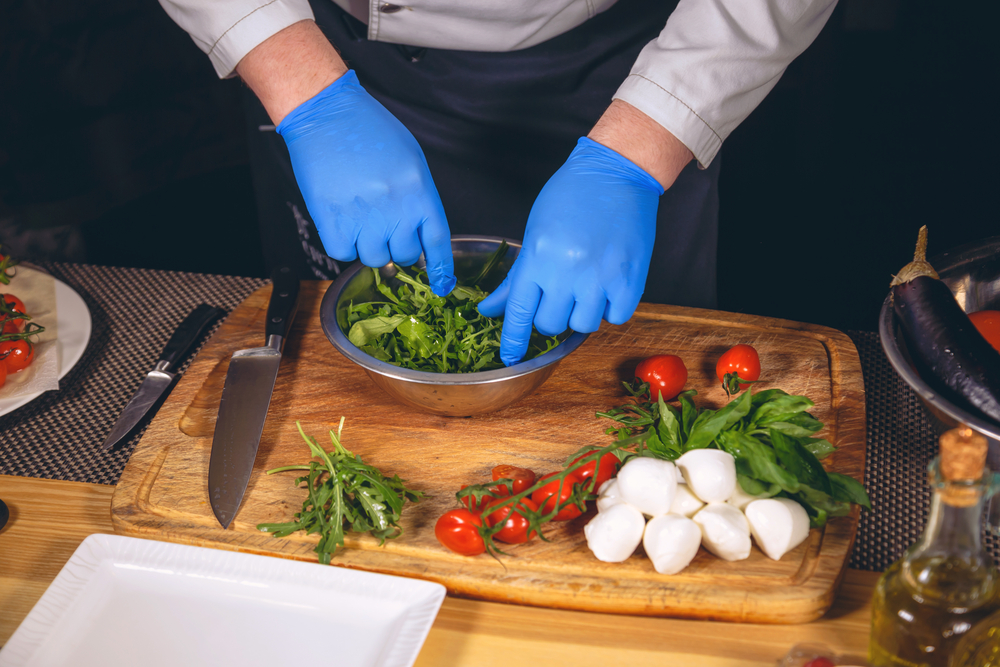Hand hygiene is a critical aspect of food safety. Poor hand care can lead to the spread of harmful bacteria, viruses, and other microorganisms that can cause foodborne illness.
In this article, we will explore the link between hand hygiene and food safety and provide practical tips for preventing the spread of illness-causing pathogens.
The importance of hand hygiene in food safety
Hand hygiene is essential in food safety because food handlers can unknowingly spread harmful pathogens that can cause illness. According to the Centers for Disease Control and Prevention (CDC), an estimated 48 million people in the United States get sick from foodborne illnesses each year, resulting in 128,000 hospitalizations and 3,000 deaths.
Food handlers can spread pathogens to food in a variety of ways, including through their hands. When food handlers touch their faces, hair, or clothing, they can transfer harmful pathogens to their hands.
If they then touch food or surfaces that come into contact with food, they can transfer the pathogens to the food, which can cause illness in people who consume it.
Common pathogens that can cause foodborne illnesses include Salmonella, E. coli, Norovirus, and Listeria. These pathogens can cause symptoms such as diarrhea, vomiting, abdominal pain, and fever.
In severe cases, foodborne illness can lead to hospitalization and even death, especially in vulnerable populations such as young children, older adults, and people with weakened immune systems.
Simple Tips for Stopping Pathogen Transmission
#1 Wash your hands frequently
Food handlers should wash their hands before handling food, after handling food, after using the restroom, after blowing their nose or sneezing, and after handling trash.
Proper handwashing involves wetting your hands with clean, running water, lathering them with soap, and scrubbing them for at least 20 seconds. Rinse your hands thoroughly with clean, running water, and dry them with a clean towel or air dryer.
#2 Use hand sanitizer when handwashing is not possible
If handwashing facilities are not available, or if you are handling food in a location where handwashing facilities are not easily accessible, use an alcohol-based hand sanitizer.
Choose a sanitizer with at least 60% alcohol, and apply enough sanitizer to cover all surfaces of your hands. Rub your hands together until the sanitizer is dry.
#3 Wear gloves when appropriate
Gloves can provide an additional barrier to prevent the spread of harmful pathogens. However, gloves do not replace hand hygiene. Food handlers should wash their hands before putting on gloves and after removing them.
Gloves should change frequently, especially when handling different types of food or when they become torn or contaminated.
#4 Avoid touching your face, hair, or clothing
To prevent the transfer of pathogens from your hands to food or surfaces that come into contact with food, avoid touching your face, hair, or clothing while handling food.
#5 Clean and sanitize surfaces frequently
Surfaces that come into contact with food, such as countertops, cutting boards, and utensils, should be cleaned and sanitized frequently. Use hot, soapy water to clean surfaces, and then sanitize them using a solution of one tablespoon of unscented chlorine bleach per gallon of water.
Hand hygiene is critical in preventing the spread of illness-causing pathogens in food. Food handlers can unknowingly spread harmful bacteria, viruses, and other microorganisms that can cause foodborne illness.
Practicing proper hand hygiene, including washing hands frequently, using hand sanitizer when handwashing facilities are not available, wearing gloves when appropriate, avoiding touching your face, hair, or clothing, and cleaning and sanitizing surfaces frequently can help prevent the spread of harmful pathogens in food and reduce the incidence of foodborne illness.









